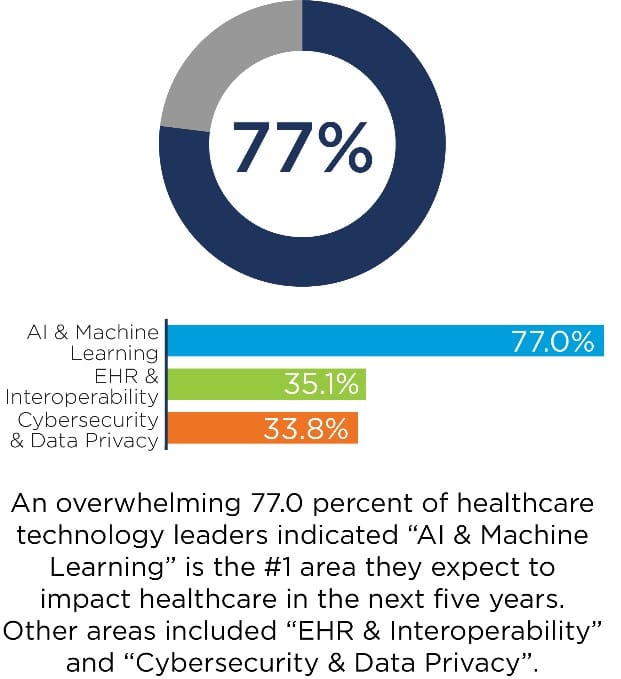A survey of healthcare technology leaders at HIMSS25 explores what’s driving today’s technology decision-making.
At HIMSS25, Performant Healthcare Inc conducted a survey of nearly 150 healthcare technology leaders to better understand the key drivers behind healthcare technology decision-making.
Survey key findings showed:
- 61.5% of respondents indicated their top priority for healthcare technology was improving patient outcomes, followed by enhancing operational efficiency (56.8%) and adopting innovative, cutting-edge solutions (55.4%).
- 77% of respondents indicated AI and machine learning, followed by electronic health records and interoperability (35.1%), are expected to have the greatest impact on healthcare over the next five years.
- Key factors in selecting healthcare technology vendors include product reliability, strong customer support, and compliance with industry standards and regulations.
The findings point to a healthcare landscape increasingly shaped by innovation, efficiency, and the imperative to deliver better outcomes for patients.
“The survey confirms what we’re seeing in the market: Healthcare organizations are prioritizing technology that drives meaningful, measurable, quality results,” says Christian Bass, senior vice president of payment integrity at Performant Healthcare, in a release.

A System Under Strain: The Urgency Behind the Data
The survey results come at a time when the broader healthcare system is under scrutiny. According to a recent US Government Accountability Office report, in FY 2024, 16 federal agencies identified $162 billion in improper payments across 68 programs, more than 50% of which were in healthcare. This does not include payments classified as fraud.
“The size and scope of this problem is staggering,” says Simeon Kohl, CEO of Performant, in a release. “While healthcare leaders at HIMSS are focused on innovation and efficiency, the reality is that fraud, waste, and abuse has caused hundreds of billions of dollars of waste that could otherwise support patient care, health equity, and long-term system resilience.”
Grant Kordash, senior vice president of technology, adds in a release, “By identifying patterns and trends within large data sets, AI and machine learning can help optimize payment processes, reduce errors, and enhance overall efficiency.”





